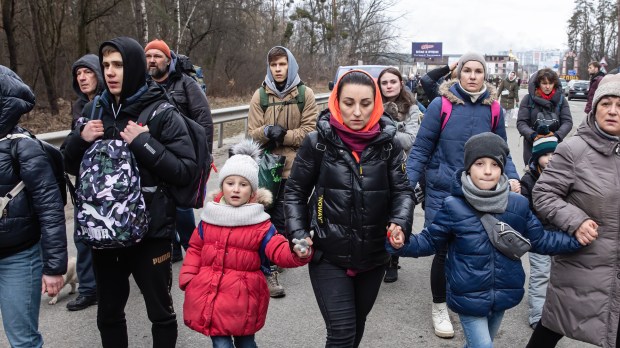The United States has pledged to welcome up to 100,000 Ukrainian refugees and provide $1 billion towards humanitarian aid for those affected by Russian’s invasion of Ukraine, the White House announced on Thursday.
“This is not something that Poland or Romania or Germany should carry on their own,” Biden said, according to a New York Times report. “This is an international responsibility.”
According to the United Nations, since Russia invaded Ukraine on February 24, almost 3.5 million people have crossed international borders outside of Ukraine.
Refugees with family in the US
The White House released a statement announcing that while the Biden Administration expects many Ukrainians will remain in Europe “close to family and their homes in Ukraine,” the U.S. will open its doors to a select group of refugees.
Ukrainians will be welcomed into the US through the Refugee Admissions Program, and those who have family members living in the United States will be given preferential consideration over other refugees.
The United States, will not consider airlifting Ukrainians into the country as they did in Afghanistan, according to the New York Times report. More than 76,000 Afghan citizens were evacuated to the United States following the US military’s exit from Afghanistan.
Humanitarian aid and support for “activists and vulnerable groups”
The $1 billion in humanitarian aid will go towards providing food, shelter, and clean water to those affected by the war.
The White House announced that in addition to humanitarian assistance, they are pledging $320 million in”democracy and human rights funding to Ukraine and its neighbors.”
The Biden Administration announced plans for a European Democratic Resilience Initiative (EDRI) to “support societal resilience and defend human rights in Ukraine and neighboring countries. “
“The EDRI is expected to support media freedom and counter disinformation, increase the safety and security of activists and vulnerable groups including LGBTQI+ persons, build resilience to strategic corruption and kleptocracy, strengthen democratic and anti-corruption institutions and the region’s rule of law, and support accountability for human rights abuses and violations of international law,” read the press release announcing the new program.

